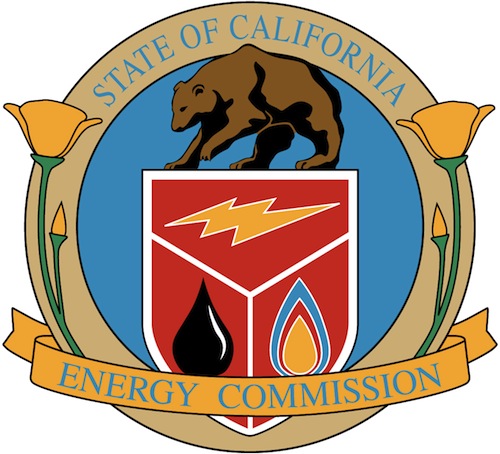
Cross-posted from Legal Planet.
This month marks the 40th anniversary of California's landmark Warren-Alquist Act, which created the state Energy Commission and triggered a transformation of energy policy in California, across the U.S., and abroad.
This week an impressive group of energy policymakers, political leaders, energy scholars and Energy Commission alumni gathered at events in Sacramento and at the U.C. Davis School of Law, to commemorate the first four decades of the Commission's important work and-even more importantly-to chart California's energy policy in the years ahead. There, dignitaries including California Governor Jerry Brown, Intergovernmental Panel on Climate Change (IPCC) Chairman R.K. Packauri and the co-author of the 1974 Warren-Alquist Act reminisced about the launch of the Energy Commission in January 1975 and challenged the Commission to continue its energy leadership through the coming decades.
As Governor Brown and former Assemblyman Charles Warren noted, the seeds of the transformative Warren-Alquist Act sprouted in the early 1970's, when California's private utilities were experiencing 7-9% annual growth in state electricity demand. The utilities projected that some 60-70 new, 1000 megawatt nuclear power plants would be required to accommodate that demand, which they forecast would double every 10 years. An influential report by the Rand Corporation, published contemporaneously, confirmed the utilities' projected growth rate, but presciently observed that it would only occur under a "business as usual" scenario. Other energy futures, the report opined, were possible.
Then history and international conflict intervened.
In the wake of the 1973 Arab-Israeli War, Middle East oil producing nations created an oil embargo that quickly made U.S. citizens and their political leaders realize how dependent the American economy had become on imported oil. America faced severe energy shortages for the first time since World War II, which consumers experienced first hand in the form of long lines at gas stations, severe shortages of home heating oil, etc.
In California, then-Governor Ronald Reagan, the California Legislature and state utilities quickly realized that the state needed to update its energy policies to respond to long-term energy growth projections and immediate energy shortages. The utilities hopes for legislation that would provide for a "one-stop" siting process for its planned, new power plants by preempting traditional local control over such development projects, in favor of a centralized permitting agency at the state level.
In hindsight, the utilities should have been careful what they wished for. The Legislature passed the Warren-Alquist Act in 1974, which gave the utilities the permit streamlining process for which they had lobbied. But the legislators who passed the Act also were influenced by the findings of the Rand Report and the repercussions of the Arab Oil Embargo. Critically, the new legislation incorporated three other key provisions-designed to address the demand side of the energy equation-which in hindsight have proved far more influential than the law's siting reform:
- It directed the newly-created Commission to formulate and adopt the nation's (and planet's) first-ever energy conservation standards for both buildings constructed and appliances sold in California;
- The Act removed the responsibility of electricity demand forecasting from the utilities, which had a financial interest in high demand projections, and transferred it to a more impartial Commission;
- The Commission was directed to embark upon an ambitious research and development program, with a particular focus on fostering non-conventional energy sources;
The Energy Commission, headed by appointees of newly-elected California Governor Jerry Brown, quickly got to work.
Fast forward 40 years. The performance of the Energy Commission in implementing the Warren-Alquist Act has been impressive indeed. The Commission's record was recounted in detail at today's "California Energy Commission 40th Anniversary Symposium," hosted and co-sponsored by U.C. Davis' California Environmental Law and Policy Center: while U.S. per capita energy demand has increased by 50% over the past four decades, California's growth rate has remained flat. California's first-ever energy conservation standards for appliances and buildings have been replicated by the federal government and many other nations across the globe. And the research and development programs launched by the Commission made California the hub of renewable energy technology innovation.
Even if the Commission were content to rest on its laurels (it's not), new energy challenges and initiatives lie ahead. Governor Brown announced them in his fourth inaugural address and his State of the State speech, both held earlier this month. Brown reiterated those goals in this week's events commemorating the Warren-Alquist Act and the Energy Commission:
- Cutting California's dependence on petroleum-based fuels by 50% by 2030;
- Increasing the state's Renewable Energy Portfolio-which California law already targets at 33% by 2020-to 50% by 2030; and
- Increasing the energy efficiency of new California building stock by 50%.
These energy goals are every bit as daunting in 2015 as the then-newly-enacted provisions of the Warren-Alquist Act were in 1975. But, as both Governor Brown and IPCC Chairman Pachauri noted this week, they are critical elements of California's overarching strategy to reduce the state's aggregate greenhouse gas emissions by 20% by 2020; 50% by 2030; and fully 80% by 2050.
The Energy Commission's pioneering work over the past 40 years has been a critical element in moving California to a far cleaner, more sustainable future than was projected four decades ago. The Commission will have to be even more innovative and thoughtful if it is to lead California to an even greener, more environment-friendly future 40 years from now.
Happy Birthday, Energy Commission! Time to get back to work.